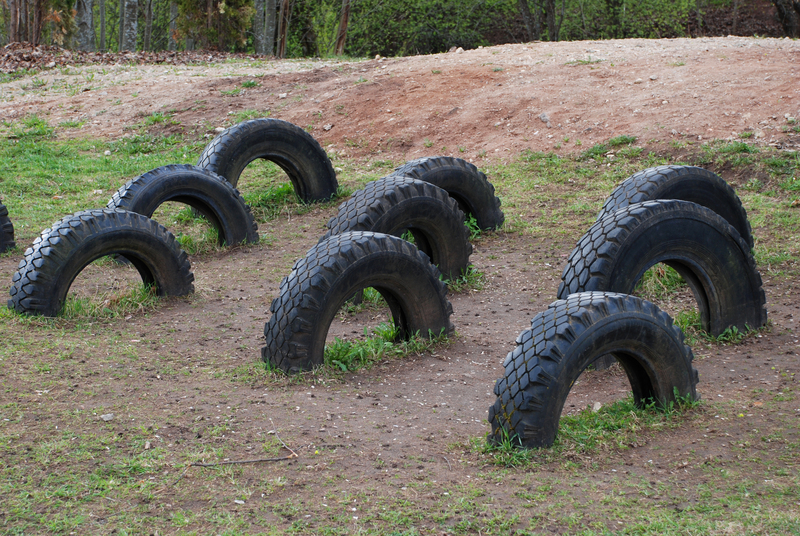Unveiling Waste Varieties Turned into Renewable Energy
In the pursuit of sustainable energy sources, waste has emerged as an unlikely but potent player. The transformation of waste into renewable energy not only alleviates the burden on landfills but also provides a cleaner energy alternative. This article delves into the various waste types that are being harnessed to generate renewable energy, exploring the processes and benefits involved.
Understanding Waste-to-Energy Conversion
The concept of converting waste into energy is not new, but recent technological advancements have significantly enhanced its efficiency and sustainability. Waste-to-energy (WtE) technologies allow for the conversion of waste materials into usable heat, electricity, or fuel. These processes not only reduce waste volume but also provide a valuable source of renewable energy.
Key Processes in Waste-to-Energy Conversion
- Combustion: This is the most common WtE technology, where waste is burned at high temperatures to produce heat, which is then used to generate electricity.
- Gasification: Involves heating waste materials in a low-oxygen environment to produce syngas, which can be used to generate electricity or serve as a raw material for chemical production.
- Pyrolysis: Similar to gasification but occurs in the absence of oxygen. Pyrolysis breaks down organic materials to produce bio-oil, syngas, and char.
- Anaerobic Digestion: A biological process that breaks down organic waste in the absence of oxygen to produce biogas, which can be converted into electricity or heat.

Types of Waste Converted into Renewable Energy
If the idea of converting waste into renewable energy sparks your interest, you'll be intrigued by the diverse types of waste that are transformed through these innovative processes.
Municipal Solid Waste (MSW)
Municipal solid waste, commonly known as trash or garbage, consists of everyday items discarded by the public. This category includes household waste and is primarily handled through combustion and anaerobic digestion. By reducing MSW through energy conversion, we are not only generating power but also mitigating landfill expansion.
Agricultural Waste
Agricultural operations generate vast quantities of residuals and byproducts, including animal manure, crop residues, and other organic materials. Through anaerobic digestion and biomass technology, these wastes are converted into biogas and biofuels, supporting rural energy needs and promoting agricultural sustainability.
Industrial Waste
Industrial processes produce a variety of waste materials, from organic slurries to chemical byproducts. These wastes offer significant potential for energy recovery through technologies like gasification and pyrolysis. By converting industrial waste into renewable energy, industries can reduce their environmental footprint and operational costs.
Food Waste
Globally, a staggering amount of food is wasted every year, despite many communities facing food insecurity. Converting food waste through anaerobic digestion presents an opportunity to produce biogas for energy and nutrient-rich digestate for soil amendment. This process not only generates sustainable energy but also contributes to a more circular economy.
Sewage Sludge
Typically seen as a byproduct of wastewater treatment, sewage sludge harbors untapped energy potential. Anaerobic digestion of sludge produces biogas, turning what was once a disposal problem into a renewable energy solution.
The Benefits of Waste-to-Renewable Energy Technologies
The transformation of various waste types into renewable energy holds numerous advantages that extend beyond merely waste reduction.
- Environmental Impact: Reducing waste volume through WtE processes decreases the burden on landfills, lowers greenhouse gas emissions, and helps combat climate change.
- Energy Security: By diversifying energy sources and increase self-sufficiency, WtE offers a robust addition to the renewable energy portfolio.
- Economic Growth: WtE projects create jobs and stimulate local economies, offering a viable business model that contributes to economic sustainability.
- Resource Recovery: Apart from energy, WtE technologies focus on recovering and reusing materials, promoting a circular economy.

Challenges and Future Prospects
Despite its advantages, waste-to-energy conversion faces several challenges. High initial investment costs, regulatory hurdles, and public perception are some of the barriers to widespread adoption. However, ongoing research and development continue to improve the efficiency, affordability, and social acceptance of these technologies.
Looking forward, the future of WtE technologies appears promising. Innovations in waste sorting, advancements in conversion processes, and a growing interest in achieving a zero-waste society fuel potential growth. As part of the global transition towards renewable energy, waste-to-energy conversions are positioned to play a pivotal role.
Conclusion
The advent of waste-to-energy technologies signifies a paradigm shift in how we perceive waste. No longer a mere byproduct to be discarded, waste is increasingly recognized as a valuable resource with significant renewable energy potential. By unveiling the diverse waste varieties that can be transformed into clean energy, societies worldwide are taking steps toward a more sustainable future.
By embracing these technologies, we not only mitigate the issues surrounding waste management but also unlock opportunities for renewable energy generation, economic growth, and environmental preservation. As we continue to innovate and refine these processes, waste could very well become a cornerstone of our renewable energy landscape.